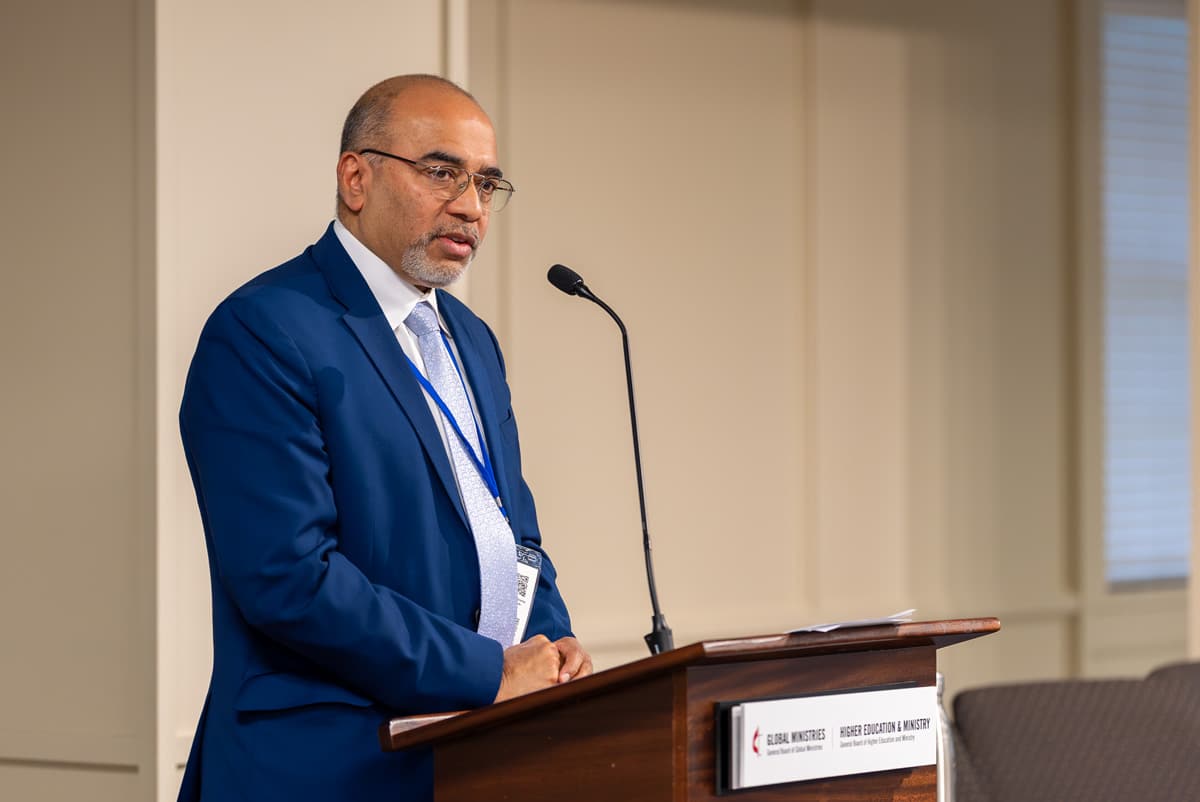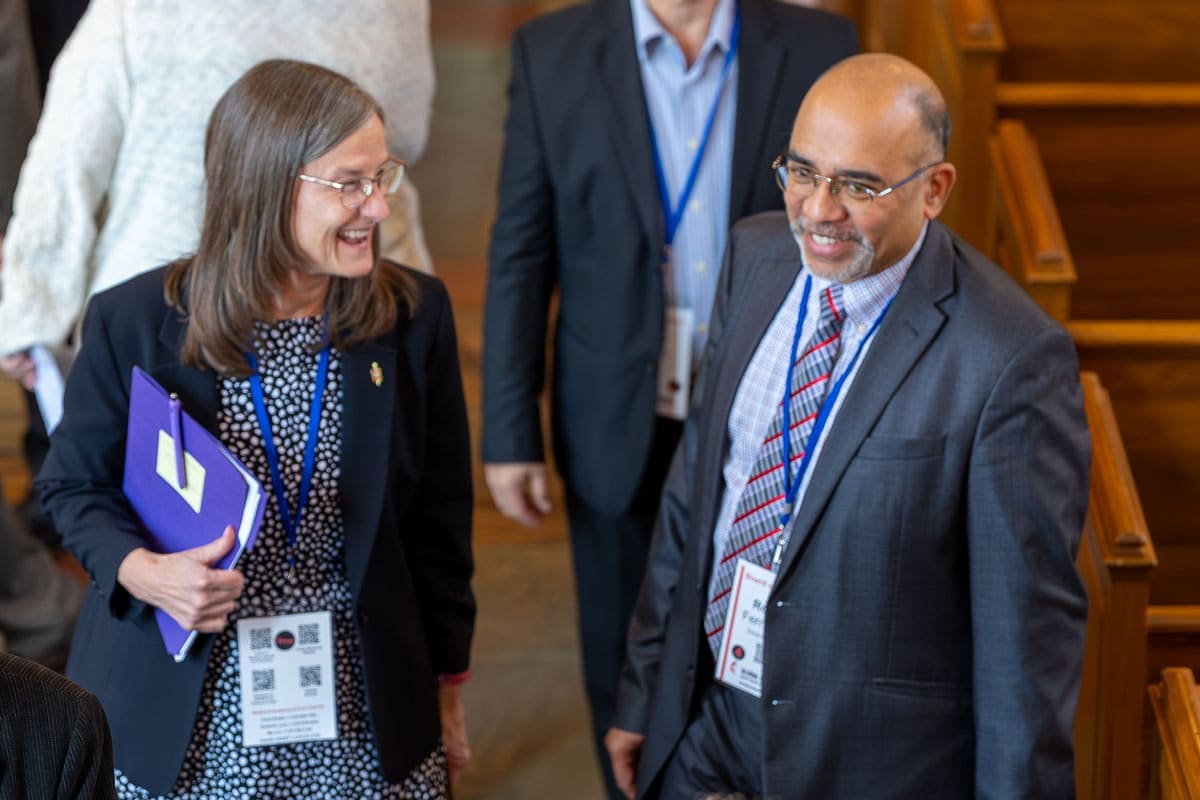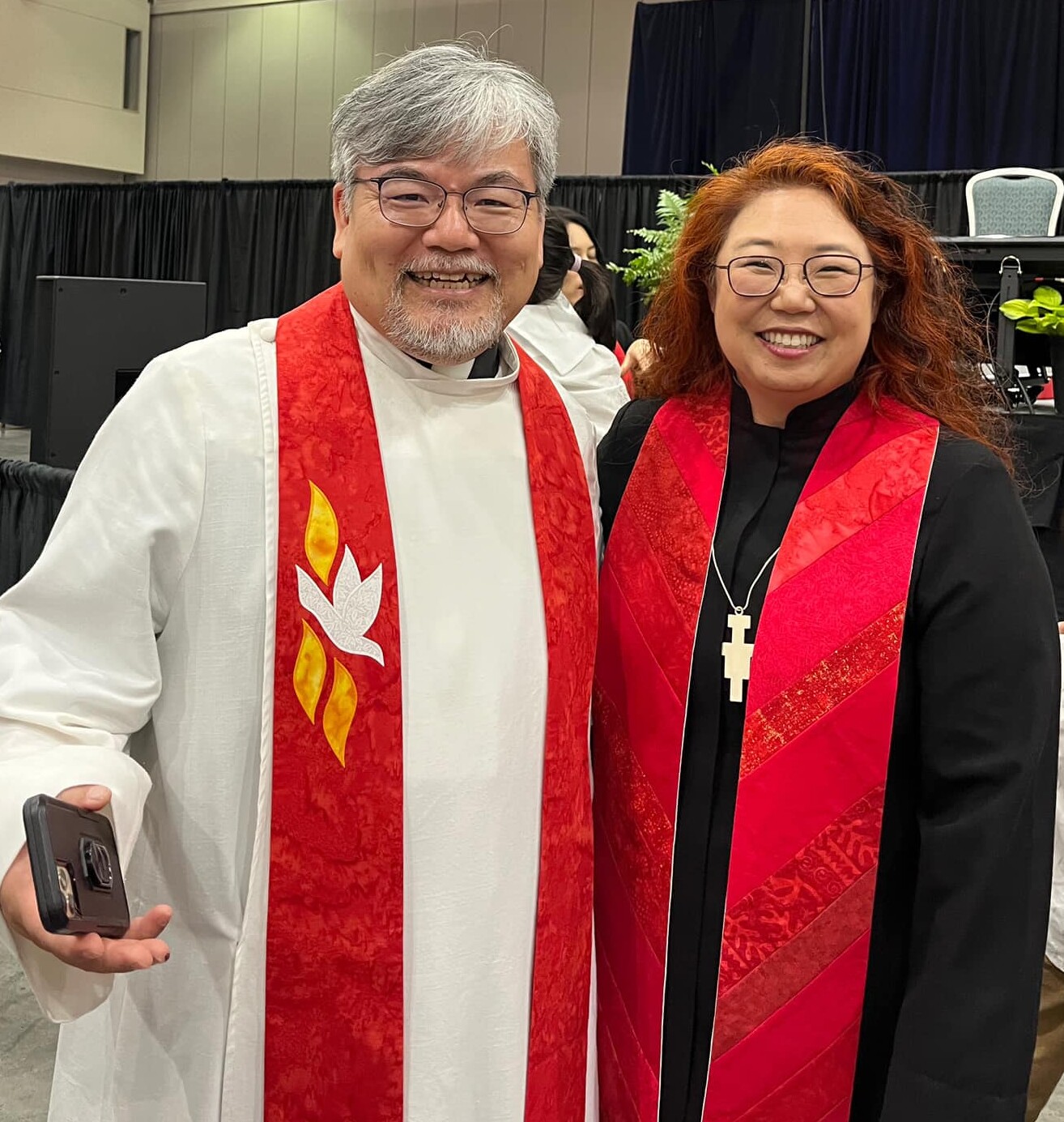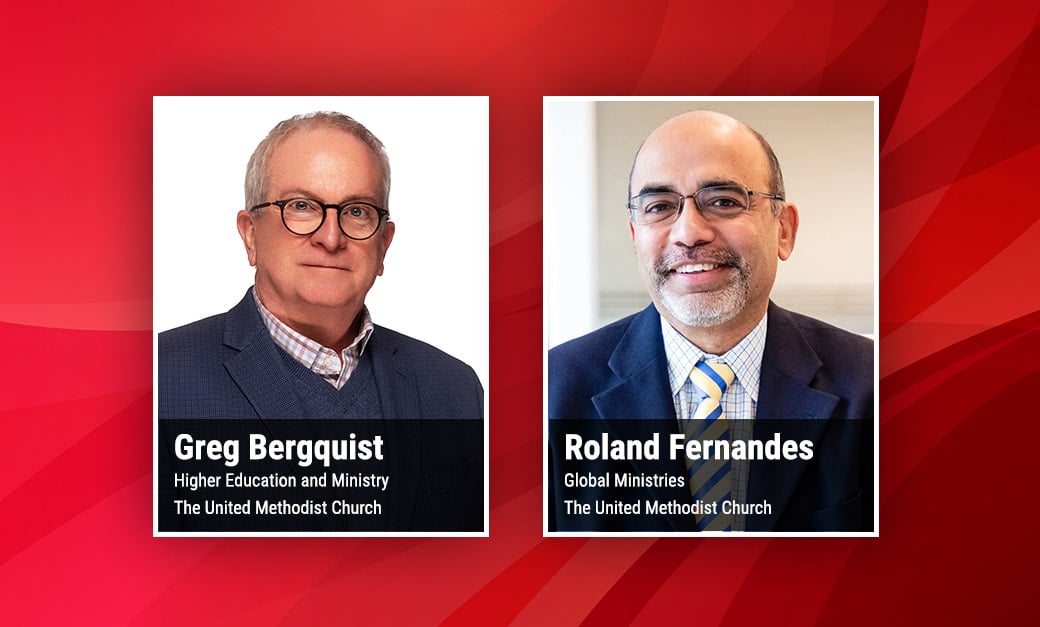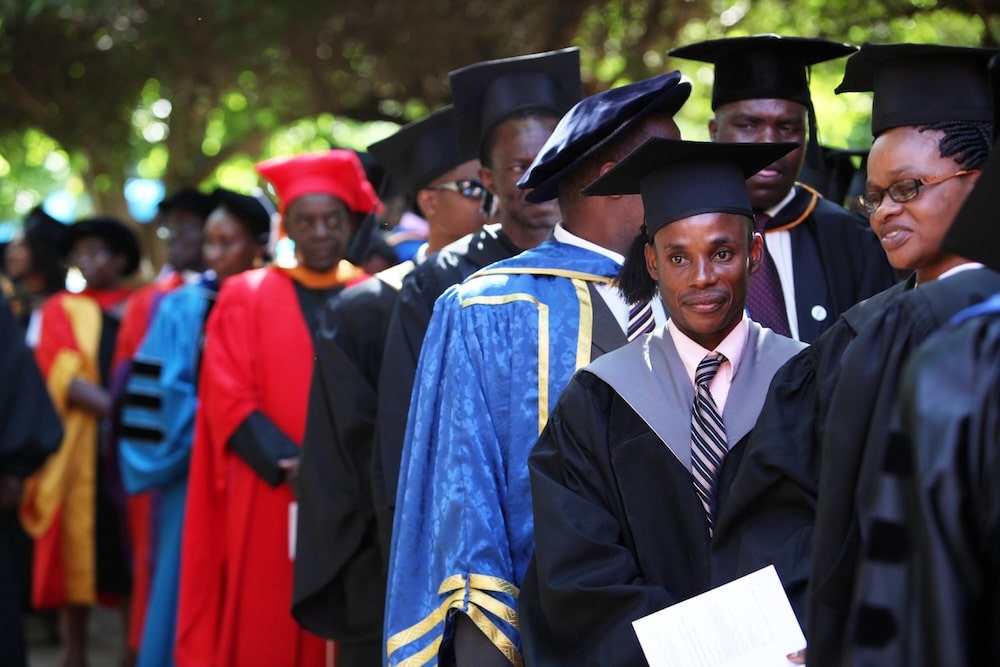EIST Grants Are Used to Transform Young Lives and Recruit Minorities for Church Service

The General Board of Higher Education and Ministry’s (GBHEM) mission is centered around the formation and development of leaders for The United Methodist Church. As leaders reflect the people that they serve, GBHEM is committed to ensuring that ethnically diverse leaders at every level are recruited, trained and retained for service within the church. To aid in this, the Ethnic In-Service Training Grant (EIST) awards up to $10,000 for innovative minority training programs. Applications for the EIST grants are open now through March 7, 2018.
Nashville Freedom Schools
Awarded money to hire and train three servant-leader interns to operate quality education summer programs, Nashville Freedom Schools is one of the programs benefiting from the EIST grant. An affiliate of the Children’s Defense Fund Schools, Nashville Freedom Schools’ mission is to boost the reading fluency and comprehension, as well as nonviolent problem solving and cultural pride, for African-American and Latino children living in poverty in Nashville.
“Our servant-leader interns are our primary teachers for our summer reading curriculum. Each is a mentor to 10 children during our six-week sessions,” said Garlinda Burton, president and executive director of Nashville Freedom Schools and United Methodist deaconess in the Tennessee Annual Conference. “Servant-leader interns are college and graduate students, ages 19 to 29, who endure a rigorous screening and interview process in order to work with our scholars at the Freedom Schools. The majority of the interns are young people of color with a strong spiritual and moral outlook, who are committed to careers in religious leadership, education, social activism, poverty reduction, family and children services, mentoring and human and civil rights.”
Nashville Freedom Schools’ long-term goals for the EIST grant are to engage young adults of color in leadership, both ministerial and lay, and build a community network of interns, volunteers, congregations, and parents who are all focused on helping at-risk children succeed.
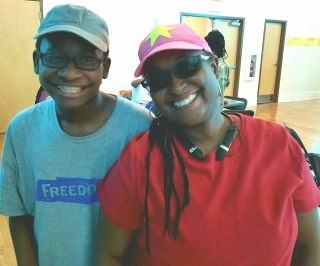
Individual successes are helping Nashville Freedom Schools to achieve their goals. For example, T.J. Debnam, a Vanderbilt Divinity School student and stand-out mentor, learned one of his students was being bullied at school so he turned the situation into a teachable moment for all of the students. He stopped the planned lesson to show a video about a young black man in prison who was also bullied by his peers. The man said that people who have been marginalized must be encouraged to stand together in a world that often isolates people. After that lesson and a class discussion in which all students talked about their own hardships, T.J. had the students write a covenant of mutual support for their class, which included the child who had been bullied.
“The class was transformed,” exclaimed Burton. “The kids started sitting together at larger Freedom Schools events. The bullied child’s mother shared that the ‘Freedom School has changed his life and he’ll be back.’ It was an awesome experience for the children as well as T.J.”
“We have had many successes with our servant-leader interns,” explained Burton. “I promoted two former servant-leader interns to site coordinators because of their good work the year before.” Of the 20 interns in 2017, three were hired as public-school teachers and six were accepted into or started graduate/professional school (all have 3.0+ grade point averages). The 2017 servant-leader interns came from Clark-Atlanta University (United Methodist-affiliated historically black college), Fisk University, Tennessee State University, Howard University, Vanderbilt University (Peabody Education School and the Divinity School) and Middle Tennessee State University.
Oklahoma Indian Missionary Conference
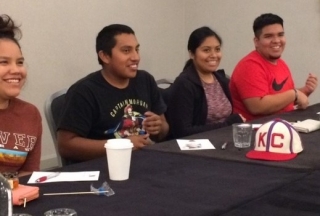
The Oklahoma Indian Missionary Conference (OIMC) is another recipient of the EIST grant. OIMC, comprised of 6,000+ members and 84 churches (many over 100 years old), is using the grant to introduce Native Americans to opportunities in ministry. As a part of the initiative, nine young people participated in Exploration 2017, an event designed to help young adults discern their call to ministry. Over the next year, conference members, from teenagers to those in their 40s, will have an opportunity to visit a United Methodist seminary to immerse themselves in the life of seminarians.
“We face many challenges in recruiting Native Americans to ministry—one of the primary being the disparities in salaries,” explained Rev. David Wilson, conference superintendent, OIMC. “Many of the churches have small congregations and an inability to offer pastors salaries of more than $15,000 a year. This makes it difficult for people to afford ministry as a vocation. However, through partnerships with GBHEM and other agencies, we work to help bridge the gap for churches and the pastors.”
Wilson first learned about the grant through his long-time relationship with GBHEM and many of the departments within the agency like Loans and Scholarships that help provide financial assistance for Native American undergraduate and seminary students. Wilson is also a former member of GBHEM’s board of directors.
“I am always surprised when I share information about the EIST grants and more people are not aware of them,” said Wilson. “The grants are vital in recruiting and retaining Native American and other minority representation in our church. OIMC would not be able to offer the resources we do without EIST and other grants. EIST is invaluable!”
OIMC’s recruitment initiative originally kicked off in April 2017 and will continue through 2018. “We hope to gain additional funding through other grants, possibly the Young Clergy Initiative [another GBHEM program that provides grants for initiatives focused on recruiting the youth of the church to ministry],” said Wilson.
The EIST grant is funded from the World Communion Special Sunday, observed on the first Sunday in October, or any day designated by local churches. World Communion Sunday is one of the six churchwide Special Sundays. The offering also provides graduate scholarships for domestic and international students and undergraduate scholarships for racial-ethnic students within the U.S.
EIST grants are open to local churches and organizations associated with The United Methodist Church. Minority-focused partnerships and collaborative efforts within campus ministry, chaplaincy and institutions of higher education are encouraged to apply. Creative programs in ministry settings like children and retirement homes, camping and retreat centers and hospitals will also be considered for the grant. EIST grant applications are open now through March 7, 2018.
To learn more about the EIST grant, visit www.gbhem.org.
About GBHEM: As the leadership development agency of The United Methodist Church, the General Board of Higher Education and Ministry’s mission is to build capacity for United Methodist lay and clergy leaders to discover, claim and flourish in Christ’s calling in their lives, by creating connections and providing resources to aid in recruitment, education, professional development and spiritual formation. Every elder, deacon and licensed local pastor benefits from our training and candidacy programs. Many young adults find help in clarifying their vocation and God’s call in their lives through our leadership and discernment programs. Follow us on Twitter and Facebook: @GBHEM.
Related Posts
United Methodist mission and education agencies form new boards of directors. October 15, 2024 | by Elliott Wright NASHVILLE, Tenn. – The general boards of Higher Education and Ministry and Global Ministries affirmed their partnership in mission and ministry during a joint meeting of their boards of directors in Nashville...
Higher Education and Ministry and Global Ministries boards meet in Nashville for organization, orientation and connection. Bishop Sandra Steiner-Ball with Roland Fernandes. The bishop gave the sermon during opening worship for the joint GBHEM and GBGM meeting taking place October 14 - 17 in Nashville, Tenn. Photo: Adam Bowers...
Rev. MiRhang Baek, Virginia Annual Conference, The United Methodist Church, with spouse Rev. TaeWon Kang. Participating in the Clinical Pastoral Education (CPE) program at the General Board of Higher Education and Ministry’s Center for Integrative Pastoral Practice (CIPP) has profoundly transformed my self-awareness, personal growth and ministry as...
